
This top 10 list is the most famous generals of all time.
Summary List
- Alexander the Great – King of Macedonia and conqueror of the Persian Empire.
- Julius Caesar – Roman general and statesman who played a critical role in the events that led to the demise of the Roman Republic.
- Napoleon Bonaparte – French military and political leader who rose to prominence during the French Revolution.
- Genghis Khan – Mongol conqueror who founded the Mongol Empire, the largest contiguous empire in history.
- Sun Tzu – Ancient Chinese military general, strategist, writer, and philosopher who wrote “The Art of War.”
- Khalid ibn al-Walid – Companion of the Prophet Muhammad and one of the greatest military commanders in Islamic history.
- Saladin – Muslim military leader who fought against the Crusaders and recaptured Jerusalem.
- William the Conqueror – Norman conqueror of England who successfully invaded England in 1066.
- George Washington – American general and statesman who served as the first President of the United States.
- Hernán Cortés – Spanish conquistador who led the expedition that caused the fall of the Aztec Empire.
Famous Generals Countdown:
Although this is a countdown list, there is really no particular order for these great leaders from the past.
10. Hernán Cortés
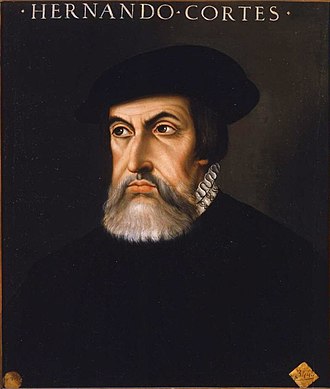
Hernán Cortés was a Spanish conquistador who led the expedition that defeated the Aztec Empire and claimed Mexico for Spain. A fearless warrior, he was also a man of contradictions, both revered and reviled for his role in the conquest.
10 Interesting Facts:
- Born in Medellín, Spain in 1485, Cortés was the son of a minor nobleman.
- Cortés sailed to the New World in 1504 and established himself as a successful planter and slave trader in Cuba.
- He set sail for Mexico in February 1519 with 11 ships, 550 men, and 16 horses.
- Cortés marched into the Aztec capital of Tenochtitlán and claimed it for Spain in 1521.
- He was the first European to make contact with Moctezuma, the Aztec emperor.
- He employed a strategy of allying himself with the conquered peoples and using them as a force against the Aztecs.
- Cortés burned his own ships upon arrival, ensuring his men had no choice but to continue with the mission.
- Cortés was appointed Governor and Captain-General of the new Spanish territory in Mexico.
- He made a failed expedition to Honduras and had a number of political conflicts with the Spanish authorities.
- Cortés died in Spain in 1547, at the age of 62, and was buried in the Convent of San Francisco in Seville.
Conclusion: Hernán Cortés was a complex figure, both praised and criticized for his actions in Mexico. Nevertheless, his legacy as a conqueror lives on and he remains an important figure in the history of Spain and Mexico. The defeat of the Aztec Empire by Cortés and his men marked the beginning of Spanish rule in the New World and opened up Mexico to colonization and Christianity.
9. George Washington

George Washington, the man who led America to independence from Great Britain and became its first President, is a figure of legend. Born in Virginia in 1732, Washington grew up to become one of the most important figures in American history.
Interesting Facts:
- Washington was a skilled surveyor and mapmaker before becoming a soldier and politician.
- He played a key role in the French and Indian War.
- Washington was appointed commander-in-chief of the Continental Army during the American Revolution.
- He personally led his troops to victory at the Battle of Trenton and the Battle of Princeton.
- Washington was unanimously elected as the first President of the United States.
- He set precedents for the presidency, including the two-term limit.
- Washington was a strong advocate for national unity and helped define the role of the federal government.
- He was known for his integrity and strong leadership, earning him the nickname “Father of his Country”.
- Washington was a successful planter and farmer, and was one of the largest landholders in the country.
- He was a vocal opponent of political parties and worked to maintain the neutrality of the Federal government.
Conclusion: George Washington’s life was one of service, leadership, and accomplishment. He was a key figure in America’s fight for independence, a wise and just President, and a symbol of the nation’s strength and unity. His legacy endures to this day, as a symbol of American patriotism and a model for future leaders.
8. William the Conqueror
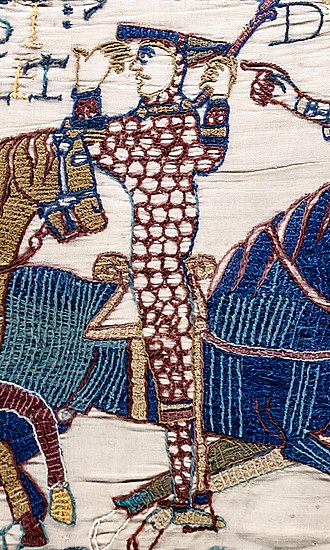
William the Conqueror, Duke of Normandy, is one of the most famous figures in medieval history. This Norman warrior-king changed the course of England’s future through his conquest in 1066.
Interesting Facts:
- William was born to a noblewoman and a nobleman, but not married.
- He grew up in Normandy, France and became Duke of Normandy at the age of 7.
- William’s claim to the English throne was disputed and led to the Norman Conquest.
- He was a formidable military leader and is known for the Battle of Hastings.
- William introduced feudalism to England and conducted a massive survey of his new kingdom known as the Domesday Book.
- He built many castles to control and protect England, including the Tower of London.
- William ordered the construction of Westminster Abbey.
- He was a skilled horseman and a patron of the arts.
- William was known for his cruelty and harsh rule, but was also respected by his subjects.
- He died in 1087 after a fall from his horse and was buried in Caen, Normandy.
Conclusion: William the Conqueror’s impact on England and Europe cannot be overstated. His military conquest and feudal rule reshaped the nation and his legacy can still be seen in modern England today. His life and actions are the stuff of legends and continue to captivate the world centuries after his death.
7. Saladin
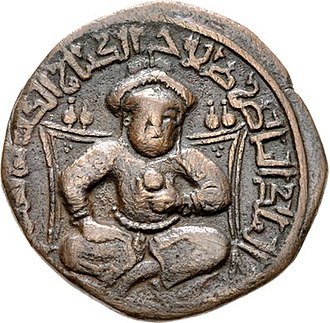
Saladin, the legendary 12th century Muslim military commander, remains a symbol of bravery, honor, and chivalry to this day. He was a man who led by example, inspiring countless soldiers to follow in his footsteps. Here are 10 interesting facts about Saladin that you may not have known:
- Saladin was born in Tikrit, Iraq in 1137 and was of Kurdish descent.
- He served as the Sultan of Egypt and Syria and founded the Ayyubid dynasty.
- Saladin was known for his military prowess and was responsible for capturing Jerusalem from the Crusaders in 1187.
- He was widely respected by his enemies and was known for his chivalry and kindness, even to those he conquered.
- Saladin was a devout Muslim and is known for his charitable work, including the construction of hospitals and mosques.
- He was offered a huge ransom for the release of Richard the Lionheart, but he refused and treated the captured king with respect and honor.
- Saladin was a brilliant tactician and his use of guerrilla warfare helped him defeat much larger armies.
- He was a merciful conqueror and allowed the people of Jerusalem to leave peacefully after its capture.
- Saladin was married and had several children, including his son al-Aziz Uthman.
- He died of a fever in Damascus in 1193, at the age of 56, and is buried there in the Umayyad Mosque.
In conclusion, Saladin remains a revered figure in history, not just for his military victories, but for his honor, compassion, and chivalry. He was a true leader, both on and off the battlefield, and his legacy continues to inspire people to this day. If you are looking to learn more about this fascinating historical figure, there is plenty to discover about the man known as Saladin the Magnificent.
6. Khalid ibn al-Walid
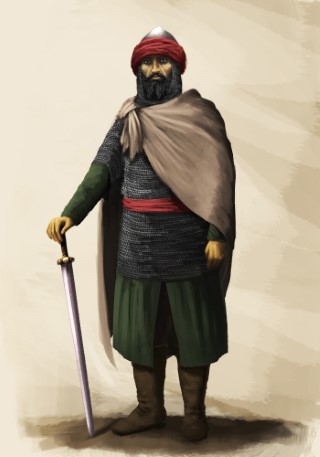
Introducing Khalid ibn al-Walid, one of Islam’s most legendary military commanders! A man known for his tactical brilliance, unwavering faith, and many victories in the name of Islam.
10 Exciting Facts:
- Khalid was an early convert to Islam, joining just a few years after the religion’s inception.
- He served as a trusted advisor to the Prophet Muhammad and was known for his bravery in battle.
- He led the Muslim army to several key victories against larger, better equipped opponents, solidifying the young religion’s place in the Arabian Peninsula.
- Khalid’s tactics were so innovative that they became known as “Khalid’s strategy.”
- He was often referred to as the Sword of God and played a crucial role in spreading Islam throughout the Arabian Peninsula.
- Khalid ibn al-Walid had an incredible winning streak of 100 battles, with only one defeat.
- He was the commander of the decisive Battle of Mu’tah, the first battle fought between the Muslims and the Roman Empire.
- He was instrumental in the Treaty of Hudaybiyyah, which secured a 10-year peace treaty between the Muslims and Meccans.
- He was also one of the companions who took part in the historic event of the Farewell Pilgrimage with Prophet Muhammad.
- Despite his successes, Khalid faced controversy later in his life and was eventually replaced as commander by the caliph, Abu Bakr.
In conclusion, Khalid ibn al-Walid’s legacy remains a significant part of Islamic history. He was a true warrior of faith, an excellent military commander, and a legend in his own time. His bravery, tactical brilliance, and unwavering commitment to Islam continue to inspire generations of Muslims to this day.
5. Sun Tzu
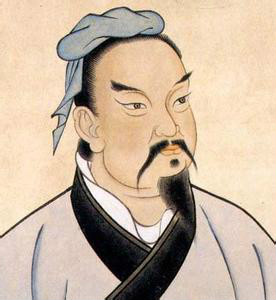
Introducing Sun Tzu, the renowned ancient Chinese general, strategist, and writer. He’s most famous for authoring “The Art of War,” a timeless treatise on military strategy still studied by leaders today.
- Born in the Eastern Zhou dynasty of ancient China.
- Fought in multiple wars and served various warlords.
- Wrote “The Art of War,” still renowned as a classic on military strategy.
- Considered a legendary figure in Chinese, Korean, and Vietnamese history.
- His strategies and tactics emphasized flexibility, adaptation, and deception.
- Advocated for minimal losses and the strategic use of spies.
- Argued that winning battles is less important than achieving long-term strategic goals.
- The principles of Sun Tzu’s “The Art of War” have been applied in various fields beyond military.
- Inspiration for countless works of art, literature, and popular culture.
- “The Art of War” continues to be read and studied by military leaders, executives, and students of strategy.
Sun Tzu’s legacy lives on through “The Art of War,” which remains one of the world’s most influential works on strategy and leadership. His principles of flexibility, adaptation, and cunning continue to captivate and inspire, making him a timeless figure in the annals of history. Sun Tzu’s impact on the world endures, and his wisdom will continue to guide future leaders for generations to come.
4. Genghis Khan
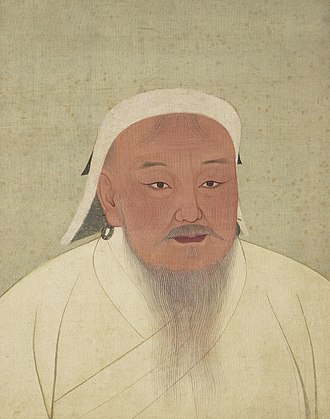
Genghis Khan, the formidable conqueror and founding father of the Mongol Empire, remains one of history’s most fascinating figures. With his fierce leadership and military strategy, he expanded his empire to become the largest contiguous empire in world history.
- Genghis Khan was born with the name Temujin in 1162.
- He was a member of the Borjigin clan, a nomadic tribe in modern-day Mongolia.
- He united the Mongolian tribes under his rule and began his conquests in the early 13th century.
- Genghis Khan’s empire spanned from the Danube River in Eastern Europe to the Yellow Sea in Asia.
- He is estimated to have conquered over 40 cities, including Bukhara, Samarkand, and Merv.
- He was a skilled military strategist and implemented effective tactics such as feigned retreats and ambush attacks.
- Genghis Khan created the Yassa, a code of law for his empire that emphasized religious tolerance and merit-based advancement.
- He was a patron of the arts and encouraged trade, leading to cultural exchange and economic growth.
- Genghis Khan died in 1227 from an injury sustained in battle.
- He was succeeded by his son, Ogedei, who continued the expansion of the empire.
Genghis Khan’s legacy is complex, as he is remembered both as a brutal conqueror and a visionary leader. Nevertheless, his impact on the world cannot be overstated, as the Mongol Empire paved the way for cultural exchange and technological advancements that continue to influence the world today. With his larger-than-life personality and boundless ambition, Genghis Khan remains one of history’s most captivating figures.
3. Napoleon Bonaparte
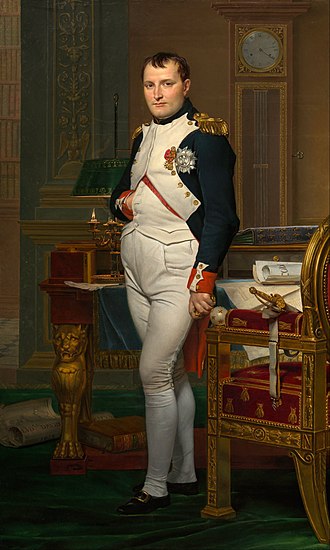
Introducing the man who conquered Europe and rose to become the Emperor of France, Napoleon Bonaparte! This brilliant strategist and charismatic leader remains one of the most controversial figures in history, loved and hated in equal measure.
10 fascinating facts about Napoleon:
- Born on the island of Corsica, he was sent to military school in France at the age of 9.
- He rose to prominence as a general during the French Revolution.
- He became the first consul of the French Republic in 1799.
- He conquered much of Europe, creating a vast empire.
- He implemented major reforms in France, including the Napoleonic Code.
- He was exiled to the island of Elba, but escaped and returned to France, only to be defeated at the Battle of Waterloo.
- He died in exile on the remote island of Saint Helena in the South Atlantic.
- He was a skilled tactician and won many battles, but also suffered several key defeats.
- He was known for his charisma and his ability to rally his troops.
- His legacy continues to influence politics and military strategy to this day.
Conclusion: Napoleon Bonaparte remains a larger-than-life figure, his legacy intertwined with the history of France and Europe. From his humble beginnings on Corsica to his ultimate defeat at Waterloo, his story is one of ambition, triumph, and tragedy. This charismatic leader continues to captivate people to this day and remains one of the most intriguing figures in history.
2. Julius Caesar

Julius Caesar, one of the most brilliant and influential figures in Roman history, was a military leader, politician, and writer who rose to power during the end of the Roman Republic. He was a man of many talents and was responsible for numerous reforms that transformed the Roman Republic into an empire. Caesar’s life and legacy continue to captivate people around the world, and he remains one of the most famous and fascinating figures in history.
Here are ten fascinating facts about Julius Caesar:
- Caesar was born into a noble family in 100 BC and was related to the famous Roman general Marius.
- He served in the Roman army and became governor of Spain, where he defeated several barbarian tribes and earned a reputation as a brilliant military leader.
- He was elected consul of the Roman Republic in 59 BC, and he quickly became a political force to be reckoned with.
- Caesar embarked on a series of military conquests, including a successful invasion of Gaul (modern-day France).
- He was also a talented orator and writer, and his works, including “The Gallic Wars,” remain some of the most important historical documents from the ancient world.
- In 49 BC, Caesar famously crossed the Rubicon River with his army, launching a civil war that would lead to his eventual rise to power.
- He was appointed dictator for life in 44 BC, and he continued to implement reforms that centralized power in the hands of the emperor.
- Caesar was famously assassinated by a group of senators in 44 BC, and his death marked the end of the Roman Republic.
- His adopted son, Octavian, went on to become the first emperor of Rome and was known as Augustus.
- Caesar’s impact on the world was immense, and his legacy continues to influence politics, military strategy, and the Latin language to this day.
In conclusion, Julius Caesar was a brilliant and influential figure in Roman history who rose to power during the end of the Republic. He was a military leader, politician, and writer who was responsible for numerous reforms that transformed the Republic into an empire. His life and legacy continue to captivate people around the world, and he remains one of the most famous and fascinating figures in history. Caesar’s impact on the world was immense, and his legacy continues to influence politics, military strategy, and the Latin language to this day.
1. Alexander the Great

Alexander the Great was one of the greatest military leaders in history. Born in 356 BCE in Pella, Macedonia, Alexander rose to fame through his tactics and strategy, conquering vast territories and spreading Greek culture throughout the world.
- He was tutored by Aristotle.
- He never lost a battle in his military career.
- He conquered the Persian Empire, Egypt, and much of Central Asia.
- He founded over 20 cities, including Alexandria in Egypt.
- He died at the young age of 32.
- He was known for his charisma and ambition.
- He is considered one of the greatest military tacticians of all time.
- He spread Greek culture throughout the world, creating a fusion of cultures.
- He introduced the Persian custom of proskynesis, a form of respect shown to the emperor.
- He was rumored to be a descendant of the Greek hero Achilles.
Alexander the Great’s life was marked by conquest, ambition, and a thirst for knowledge. His legacy lives on as one of the greatest military leaders of all time, and his influence can still be felt in the modern world through the cultures he helped to shape. Alexander’s life remains a source of inspiration and fascination, and his story continues to captivate audiences centuries after his death.
